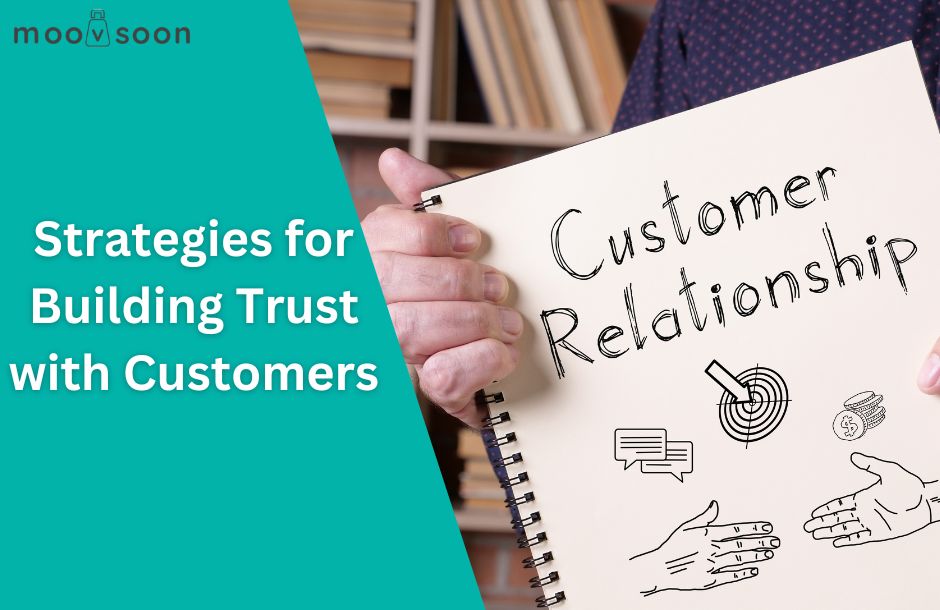
How Long-Term Customer Relationships Drive Growth
Building strong and lasting relationships with customers forms a core driver of business growth. Trust is the starting point: when customers feel confident in a company’s products or services, they are more likely to return for future purchases. For example, a local bakery that remembers regulars’ preferences often sees those customers coming back, especially when competing options arise.
As trust grows over time, customers shift from first-time buyers to repeat purchasers, often increasing their spending with each visit. This ongoing relationship can also generate positive referrals, as loyal clients share their experiences with friends and family. Many businesses find that new customers arrive after hearing about reliable service from someone they know.
A loyal customer base provides steady income and can even help a company ride out market ups and downs. Companies that focus on loyalty often notice fewer revenue swings during industry slowdowns, thanks to their repeat buyers.
Fostering customer loyalty not only increases sales but also strengthens brand reputation. Prioritizing trust-building and personal attention helps set a business apart, leading to long-term marketplace strength. To learn more about strategies for building trust with customers, consider exploring tailored approaches that reinforce these principles.
Foundational Principles of CRM
- Customer-Centricity: CRM starts with putting the customer at the center of every business decision. For example, a retail brand might use purchase history to recommend products tailored to individual preferences, which improves customer satisfaction and loyalty.
- Data-Driven Insights: Effective CRM relies on tracking and analyzing customer data to inform interactions. For instance, noticing that customers open support tickets about the same issue can prompt a team to update a product guide or offer proactive help, leading to fewer complaints.
- Consistent Communication: Regular and clear communication helps build lasting relationships. For example, sending timely updates about order status reassures customers and reduces support inquiries.
- Trust and Transparency: Customers respond well when a company is open about policies, pricing, or delays. In practice, admitting to a shipping delay and offering a solution often leads to repeat business, as it demonstrates reliability.
- Feedback Integration: Gathering and acting on customer feedback helps refine services or products. When a software company added a feature highly requested by users, the adoption rate increased and positive reviews followed. Listening to feedback is a practical way to align product development with actual user needs.
- Personalization: Tailoring experiences, such as sending personalized offers based on previous interactions, shows that a company values individual customers. This can lead to increased engagement and higher return rates, which I have observed first-hand in campaigns that used targeted emails.
Applying these principles not only strengthens customer loyalty but also produces tangible benefits—such as higher retention and more positive reviews—when integrated into daily operations. If you start with consistent feedback integration, you can quickly spot and address gaps that matter most to your customers.
How Customer Retention Impacts Costs and Profitability
Retaining existing customers directly impacts a company’s bottom line by reducing the need for new customer acquisition and increasing average profitability per client. According to a study by Invesp, acquiring a new customer can cost up to five times more than retaining an existing one. This research draws on a broad analysis of marketing budgets across multiple industries, making the finding widely relevant. For example, a software company that invests time in nurturing existing users often sees lower churn and more reliable, recurring revenue streams compared to those always focused on new sign-ups.
Many companies I’ve worked with have reported that prioritizing customer support and personalized engagement results in higher retention rates. This leads directly to increased profitability over time, as returning customers tend to buy more frequently and are less sensitive to price changes. What this means for your business is clear: focusing on keeping current clients satisfied is a practical strategy that can maximize budget efficiency and long-term growth.
Remember, understanding and improving customer retention isn’t just about saving on marketing spend. It’s about building a sustainable foundation for profit that applies whether you manage a retail store, a SaaS business, or a professional service firm.
Key Strategies to Build Customer Loyalty and Trust
- Personalize every interaction: Use the customer’s name and reference previous purchases or conversations. For example, after Sarah bought skincare products, an email follow-up suggesting complementary items led her to make another order. Clients respond well when communication feels individual rather than generic.
- Deliver on promises: Always meet the expectations you set for your clients, from deadlines to quality standards. In my experience, customers are more likely to trust and return when every commitment is reliably fulfilled.
- Create a structured loyalty program: Establish a rewards system with clear milestones, such as discounts after five purchases. When clients see tangible progress, they often stay engaged for longer, and many share their experiences with friends.
- Gather and act on feedback: Regularly ask for customer input through short online surveys and quickly implement their suggestions when possible. For instance, feedback about packaging led to easier-to-open boxes, which improved satisfaction and prompted positive reviews. Demonstrating that you listen and act on feedback strengthens customers’ trust in your brand. Read more about how online reviews impact moving businesses, highlighting the value of customer feedback.
- Stay transparent and communicate openly: Inform customers promptly about any changes, delays, or issues, and explain what’s being done to resolve them. From what I’ve seen, honest updates foster loyalty, as clients feel respected and informed.
Focusing on these practical steps leads to visible results, such as increased repeat purchases and more referrals. By consistently personalizing communication and acting on customer input, brands not only earn trust but also build lasting loyalty.
Personalizing Communication with CRM Segmentation and Messaging
CRM platforms divide customers into groups based on behaviors, preferences, or past interactions. Typically, CRM systems automatically segment users after each interaction with a website or product page. This segmentation enables businesses to tailor messages for individual needs, ensuring each customer receives content that matches their current interests.
For example, if a customer browses a specific product category but does not make a purchase, the CRM identifies this pattern. The next time the business sends an email, that customer might receive a targeted recommendation for items in that same category, along with a personalized offer or incentive. This process relies on real-time data updates, so messages dynamically reflect the customer’s latest behavior.
Applying this level of personalization brings clear benefits. Customers are more likely to open and engage with emails that feel relevant to them. For businesses, this strategy increases email open rates and conversion potential by delivering timely and meaningful content. By aligning communication with each user’s preferences and actions, brands build trust and strengthen customer relationships.
Consistent Service Quality Builds Reliability and Satisfaction
Consistent service quality supports reliability by aligning service protocols with customer expectations. For instance, using standardized cleaning checklists ensures each task is completed every time, which reduces the chance of overlooked details. Service protocols that follow set standards, such as the ISO 9001 guidelines, help minimize errors and create predictable, high-quality experiences for each customer interaction.
We consistently find that applying step-by-step procedures reassures clients and builds their trust in our dependability. Reliable service also strengthens brand reputation when customers experience consistent, dependable results in every visit. Implementing clear protocols, like quality audits or checklists, shows customers they can expect the same level of service each time, contributing directly to satisfaction and long-term loyalty. Useful data on industry standards is available in the 2025 moving industry data report.
Technological Tools for Enhanced Feedback and Engagement Analysis
Businesses use a range of technological solutions to better understand and act on customer feedback. These tools help teams analyze large datasets, uncover trends, and take targeted action, all of which support higher engagement.
- CRM Automation Platforms: These platforms organize customer interactions and collect feedback across channels. Companies often use CRM automation to quickly identify recurring complaints or positive themes, allowing them to address issues early. For instance, when customers repeatedly mention product delivery delays within CRM tickets, teams can immediately flag logistics for review, leading to faster resolutions and increased satisfaction.
- Social Media Listening Tools: These tools track public sentiment and brand mentions across social platforms. By monitoring social conversations, businesses learn in real-time what topics matter most to their audience. As an example, a business might notice a surge in positive comments about a new service feature and use that signal to amplify related content or respond directly, which deepens customer engagement. Studies show that companies responding promptly on social media often see improved loyalty scores.
- Predictive Analytics Software: This software analyzes historical customer data to anticipate future behaviors or preferences. Predictive models can flag users likely to stop interacting with a brand, prompting proactive outreach. In practice, some teams observed a decrease in customer churn after using predictive analytics to trigger personalized engagement campaigns, as reported by industry benchmarks from software vendors.
Many teams find that combining these technologies not only helps resolve feedback issues faster but also creates consistent, positive interactions that support long-term engagement. By integrating feedback analysis tools, businesses can more confidently address customer needs and foster a stronger connection with their audience. For insights specific to the moving industry, see moving industry data.
Conclusion
Adaptability in business is more than a response to change; it is a strategic asset that sets thriving organizations apart from their competitors. For example, businesses that quickly shifted to digital customer service channels during unexpected disruptions retained client trust and often reported higher satisfaction scores. This ability to pivot smoothly has a direct impact on long-term customer loyalty, as companies flexible enough to respond to evolving preferences tend to build more resilient relationships.
In my experience observing both large and small enterprises, those that embrace adaptability at every level are quicker to identify new opportunities and recover from setbacks. They don’t just survive change; they capitalize on it, fostering a culture that supports learning and confident, timely decision-making. Starting with small, incremental adjustments—such as encouraging team feedback or trialing new workflows—can lay the foundation for organization-wide adaptability. Referral programs also play a role here; for instance, referral trends are explored in detail by movers realtor referrals resources.
If you want your business to grow and maintain a loyal customer base, make adaptability a deliberate core value. Acting with confidence and preparing to pivot sets your team up for ongoing, sustainable success.
Looking to Grow Your Moving Leads?
For many moving companies, leveraging data and targeted outreach is key to staying resilient, especially during slower seasons. Platforms like MoovSoon can help you harness local market data and streamline lead generation workflows—helpful for teams navigating shifting demand.
If you’re looking to boost qualified leads or want to explore data-driven solutions, you can schedule a demo to see tailored strategies in action. Maximize Moving Leads This Slow Season.
Questions about which tools might fit your approach? Call +1 (914) 255-5452 for guidance tailored to moving industry professionals.



